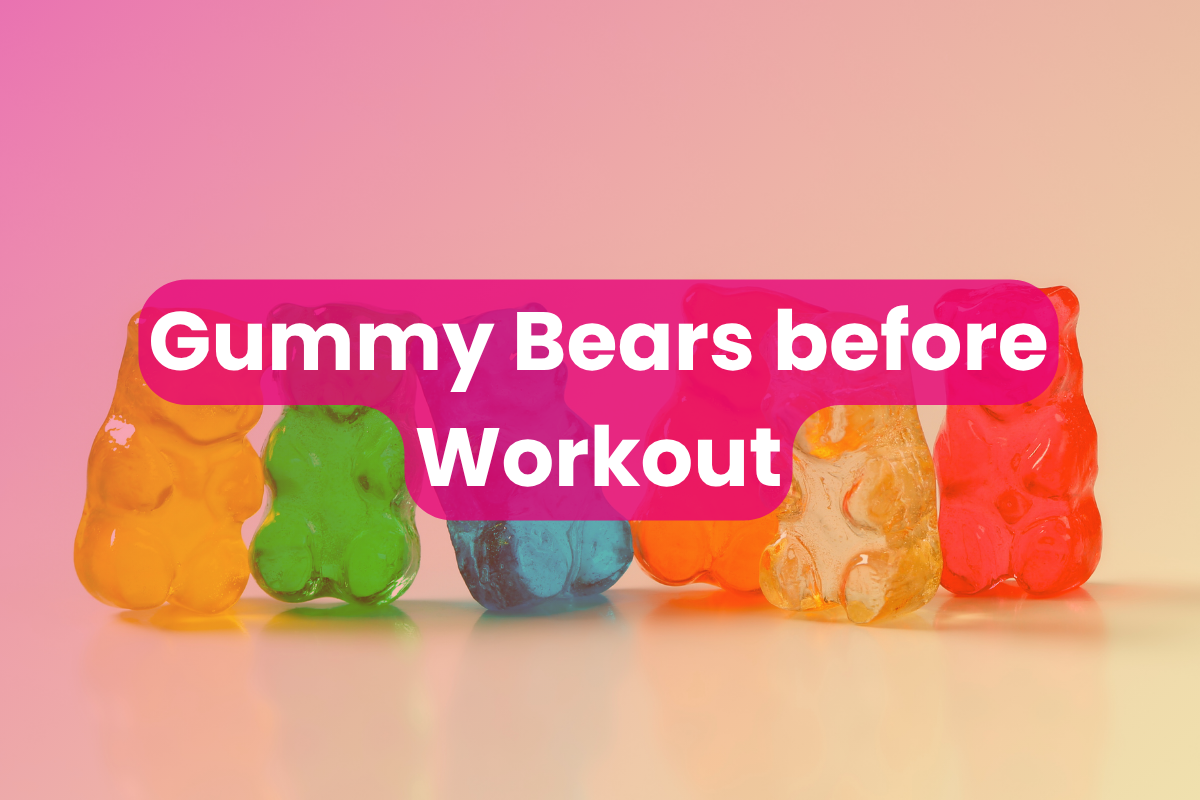
From applesauce packs to chocolate bars and protein bars, gym goers have tried incorporating a whole lot of food items into their regimens.
So, eating gummy bears before workouts doesn’t sound that weird. But is it a good idea? Maybe.
There are some benefits to using gummies as a pre-workout snack. However, you need to do it in moderation and as a part of a balanced diet.
Can You Eat Gummies Before a Workout?
While gummies aren’t exactly healthy, they could make a decent pre-workout mini snack. That’s especially true if you’re going for a high-intensity weightlifting, running, or cycling session longer than 45 minutes.
Your body taps into glycogen stores as you exercise. If you don’t have enough fuel available, you’ll have a hard time getting to the intensity level you’re aiming for. Gummies, being rich in sugar, can help provide a kick for your session.
In reality, this isn’t all that different from eating half a small pouch of applesauce before hitting the gym.
Why Gummy Bears Are a Great Pre-Workout
Why would you pick gummies over all the possible sugary snacks (candies and otherwise) out there? Well, there are a few perks to consider:
1. They’re a Quick Source of Energy
Gummy bears contain simple sugars, which your body can break down fairly quickly compared to starch. This means they’ll fuel you up even if you’ve got 30 minutes or so before your workout session.
Because they break down quickly, they won’t make your stomach feel too heavy, either.
2. They’re Convenient to Use
If preparing a pre-workout shake is too much of a hassle, gummies might be a suitable alternative.
3. They Let You Indulge Yourself
For some people, trying to cut off sweets completely is counterproductive. It might even cause them to develop an unhealthy relationship with food.
So, incorporating your favorite gummy candies into your pre-workout snack rotation could be beneficial. It’ll also help break the monotony of a healthy meal plan.
What Are the Benefits of Gummy Bears for Pre-Workout?
Gummy bears work as a fast-acting sugar source to boost your performance. They can also get you to push through and keep training longer.
If you find that eating gummies before sessions works for you, you might also want to try it as a post-workout booster. It can replenish those glycogen reserves, too.
How Many Gummies Should You Eat?
There are no hard-and-fast rules here, but you probably don’t want to overeat.
Most people grab a handful of gummy candies without paying much attention to the exact number they’re consuming each time. Others recommend eating 13 gummy bears or so, which should weigh around 30 grams.
Obviously, not all gummies weigh the same or have the same amount of sugar. So, it’s best to check the nutritional information on the package.
Can Bodybuilders Consume Gummies Before a Workout?
Yes, many bodybuilders and gym rats use gummies and other candies as a pre-workout snack.
In fact, some even bring the pack with them to the gym. This way, they can grab a quick sugar fix to keep their fuel tank full as they exercise.
Would Eating Gummies Lead to Fat Gain?
Gummies, like any other candy, have the potential to fatten and cause weight gain. However, you aren’t going to nap after eating your pre-workout—you’re going to exercise.
So, if you get the portion right and burn enough energy during your workout, you won’t have to worry about the gummy bears being stored as fat.
Do Gummy Bears Boost Energy Levels?
Yes, gummy candy can be a good energy booster. Just keep in mind that this pre-workout might not be everyone’s cup of tea. For some people, eating gummies upsets their stomachs.
Some people also prefer energy chews (gummies made specifically for boosting sports performance) over traditional gummy bears. The ingredients list is more geared towards workouts, and they usually don’t leave the teeth feeling slimy.
Which Ingredients Make Gummies Beneficial Pre-Workout?
If you’re only looking for a glycogen boost, the sugar content in traditional gummy candy will do the trick.
Gummies formulated specifically as pre-workout snacks, however, could contain caffeine, amino acids, vitamins, and even creatine monohydrate.





Comments (0)
Back to Learn